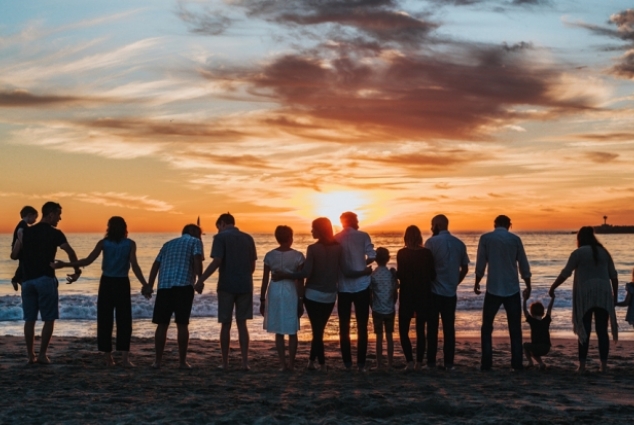Even divided families live in the grace of God

The visiting priest spoke fondly of his homily of his growth. Then he said, "Aren't we all lucky enough to have such large and loving families?" My husband and I exchanged a questioning look. Our ministry of parochial domestic violence is growing steadily; the divorce group is getting stronger, as well as the meeting of anonymous alcoholics.
This makes us like any other parish. Many of the desks thought without a doubt: "I'm happy for you, father, but it's not really my experience."
I know countless people raised by alcoholics, some of whom as children have never brought their friends home because of what a terrible scene it could take place. People who have brothers and fathers in prison. Successful lawyers whose fathers never said a word of approval to them. I have a friend whose paternal grandmother was so obnoxious to her that she told my friend, then a teenager, not long after her father's funeral, "Your father never loved you." I know people whose mothers cut them repeatedly with angry and spiteful words, even when they were young children.
Physical abuse, sexual abuse, suicide: you don't have to go far to find it. We better not pretend it doesn't exist.
John Patrick Shanley, author of the films Moonstruck and Doubt, writes in the New York Times to accompany his father to his native Ireland, where he meets his uncle, aunt and cousins, all certain talkers. His cousin takes him to the grandparents' grave, which he had never known, and suggests that they kneel in the rain to pray.
"I felt a connection with something terrible and great," he says, "and I had this thought: these are my people. "
When Shanley asks stories about his grandparents, however, the flow of words suddenly dries up: “[Uncle] Tony would seem vague. My father would become reticent. "
Eventually he learns that his grandparents were "scary", to put it kindly. His grandfather got along with almost nobody: "Even animals would run away from him." Her quarrelsome grandmother, when she was introduced with her first grandchild, "tore off the cute bonnet that the boy wore from his head, declaring: 'It's too good for her!'"
The family's reticence reflected the Irish reluctance to speak ill of the dead.
While this may be a laudable intent, we can certainly admit family problems with compassion for everyone involved. The denial and silence code passed on without words in many families often leaves children to know that something is wrong but they have no words or permission to talk about it. (And since 90 percent of communication is non-verbal, that silence speaks for itself.)
Not only scandals, but also sad events - dead, for example - may deserve silent treatment. I have known families in which entire people - uncles, even brothers - have been erased from the family's memory by silence. Are we so afraid of tears? Today, what we know about mental health claims to bring family truths to light, at an age appropriate for children. Are we not followers of the man of Galilee, who said: "The truth will set you free"?
Bruce Feiler writes about new research in the New York Times revealing that children face challenges better when they know a lot about their families and realize they belong to something bigger than themselves. Healthier family narratives include the bumps of the road: we remember the uncle who was arrested together with the mother loved by everyone. And, he says, he always stresses that "whatever happened, we have always remained united as a family".
Catholics call it based on the grace of God. Not all the stories of our family end happy, but we know that God is steadfast by our side. As John Patrick Shanley concludes, "Life holds its miracles, a good eruption from the darkness is the leader of them"